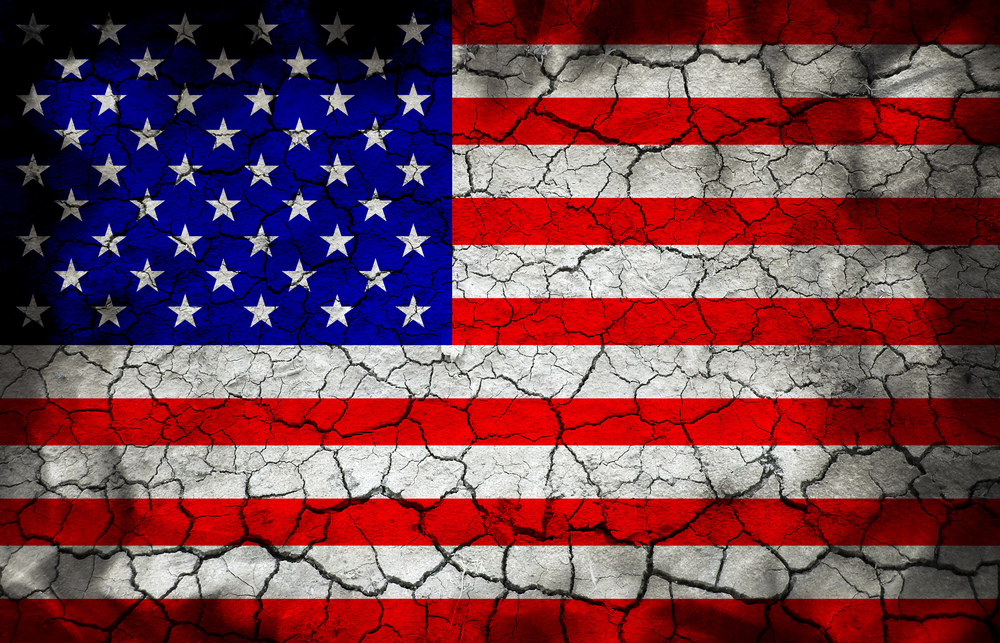Divided America—and How It Heals

Staid old Gallup knows how to get attention. Its Presidential Job Approval Center recently announced a new report with the provocative title: U.S. Muslims Most Approving of Obama, Mormons Least. The full results of this extraordinarily large sample of 88,000 interviews showed an even more dramatic division. Majorities of Muslims (72 percent), other non-Christians (59 percent), Jews (55 percent) and atheists (54 percent) supporting President Obama faced Catholics (51 percent), Protestants (58 percent) and Mormons (78 percent) opposing him.
It looks like the basis for a religious war. Then it gets even bleaker.
Only 34 percent of weekly church attendees and married persons supported Mr. Obama, with majorities of the unchurched and single women approving the job he was doing as President. The division becomes even more dramatic when one looks at race, with African Americans supporting him by 82 percent and Hispanics by 53 percent, and whites by only 30 percent.
Another very large poll of 10,000 by the Pew Research Center, analyzed in its Political Polarization in the American Public, registers an even deeper division by looking where people live and how that is related to what they think. Liberals told the pollsters that in choosing a place to live, they prefer a place with ethnic and racial diversity. Substantial majorities of liberals even prefer a place where houses are smaller and stores are near. Taking only the most liberal Americans, three-fourths say proximity to art museums and theaters is important in deciding where to live. Large percentages of conservatives prefer to live where houses are larger and facilities are further away. Conservative majorities say that living near people who share their religious faith is an important feature in deciding where to purchase a home. Liberals and conservatives alike say it is important to live where people share their political views.
Looking at the two major political parties specifically, 20 years ago one quarter of Republicans were more liberal than the median Democrat and a fifth of Democrats were more conservative than the average Republican. Today, the typical Republican is more conservative than 94 percent of Democrats and the typical Democrat is more liberal than 92 percent of Republicans.
Most Americans are not very ideological and “remain on the edges of the political playing field” but the more ideological “make their voices heard through greater participation in every stage of the political process.” To them, beliefs count: 30 percent of consistent conservatives and 23 percent of consistent liberals say they would be unhappy if a family member married someone who voted with the other party. Half of all Americans and 73 percent of conservatives would be unhappy if a family member married someone who did not believe in God.
The country is divided but what journalist Ben Domenech calls the “governing cartel” in politics and the media demands a single national solution to every problem. Barack Obama aimed at a “transformational” program like Franklin Roosevelt’s. But the country is much more divided today, and on deeper matters. And few think government bureaucracy works anymore. In his new book Citizenville, the former Democratic mayor of San Francisco and now Lieutenant Governor of California Gavin Newsom argues that “top-down, bureaucratic, hierarchical government [is] choking our democracy.” He adds: “We need to allow people to bypass government . . . to look to themselves for solving problems rather than asking the government to do things for them.”
Notwithstanding the partisan differences just described, something is going on today even among Democrats.
Having one solution for healthcare, the environment, education, job-creation and the rest just does not work given the complex technology of modern times, Newsome argues, sounding much like the free-market economist F.A. Hayek. Of course, Newsome is correctly liberal on social policy but recognizing differences on those policies is even more critical since the Gallup and Pew data demonstrate that people are even more divided over moral issues. One party or the other can force economic and social changes for a while, but at the expense of further fragmentation of our divided citizenry.
From Woodrow Wilson’s Congressional Government in 1885, to James MacGregor Burns’ Deadlock of Democracy in 1963, to Thomas E. Mann’s It’s Even Worse than It Looks today, we see that Progressives put at the top of their priorities ending government “deadlock” and adopting a consensus policy. As Wilson taught intellectuals, the reason Progressivism was frustrated here more than in Europe was the American government’s separation of powers. The solution was to grant more rational power to the executive and his bureaucratic experts. A century later, with a progressive president forcing through a rewrite of one-sixth of the economy without legislators being able to read the health bill beforehand, and ruling, as he says, with “pen and phone” by Executive Order, not only has nirvana still not arrived, the President’s popularity has sunk to historic lows and the nation is more polarized than ever.
The Founders actually had the solution. There is a reason for the current deadlock. The Constitution set forth that the national government would only do a few things, as outlined in Article I, Section 8 and the Tenth Amendment, and that the states and people do the rest. The fact that the nation is divided but that folks with different views tend to congregate together demonstrates the continuing relevance of the Founders’ construction. The Progressives from Wilson to today had it completely backwards. Rather than overriding the Constitutional separation of powers, the solution is to respect them by devolving programs and responsibility to the lowest levels, the federalist ones Alexis de Tocqueville’s Democracy in America recognized as the secret to our success.
Americans have been far ahead of their elected leaders in finding ways around progressive centralization, partially by living near folks who agree with them. The politicians merely need to follow the Constitution and let people govern themselves locally with their neighbors to escape the failure of forced progressive uniformity.

